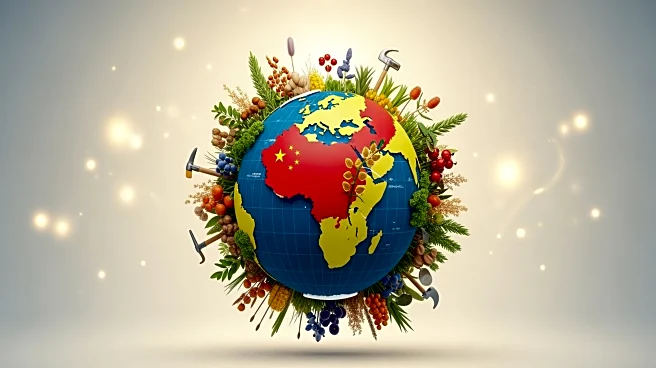What's Happening?
CABI participated in the first China-Africa Agricultural Science and Technology Innovation Alliance (CAASTIA) General Assembly in Ethiopia, marking a significant milestone in South-South cooperation for agricultural innovation. The event, initiated by
the Chinese Academy of Agricultural Sciences and the African Academy of Sciences, brought together nearly 90 founding member institutions from Africa and China. The assembly reviewed the Alliance's Charter, elected its first Council Members, and endorsed the CAASTIA Addis Ababa Declaration. Discussions focused on strengthening Africa's agricultural research and innovation systems to advance sustainable agricultural growth.
Why It's Important?
The establishment of CAASTIA highlights the importance of international collaboration in addressing agricultural challenges and promoting sustainable development. By fostering partnerships between Africa and China, the alliance aims to enhance agricultural research, innovation, and technology transfer, benefiting both regions. This collaboration could lead to improved food security, increased agricultural productivity, and better livelihoods for smallholder farmers. The focus on sustainable agricultural growth aligns with global efforts to address climate change and ensure food security for growing populations.
What's Next?
CABI plans to work closely with CAAS, AAS, and other stakeholders in CAASTIA to drive increased agricultural and technological collaboration between Africa and China. The alliance is expected to gain momentum, with potential benefits for both sides. Future initiatives may include joint research projects, technology transfer, and capacity-building programs to support sustainable agricultural practices. Stakeholders may monitor the impact of these collaborations on food security and agricultural productivity, potentially leading to further investments and partnerships.
Beyond the Headlines
The alliance raises ethical considerations about the impact of agricultural innovation on local communities and ecosystems. Sustainable practices must be prioritized to ensure that technological advancements do not harm biodiversity or cultural heritage. Additionally, the focus on South-South collaboration challenges traditional models of international development, emphasizing mutual benefits and shared expertise. This approach may influence future policies and practices in agricultural research and development.

















